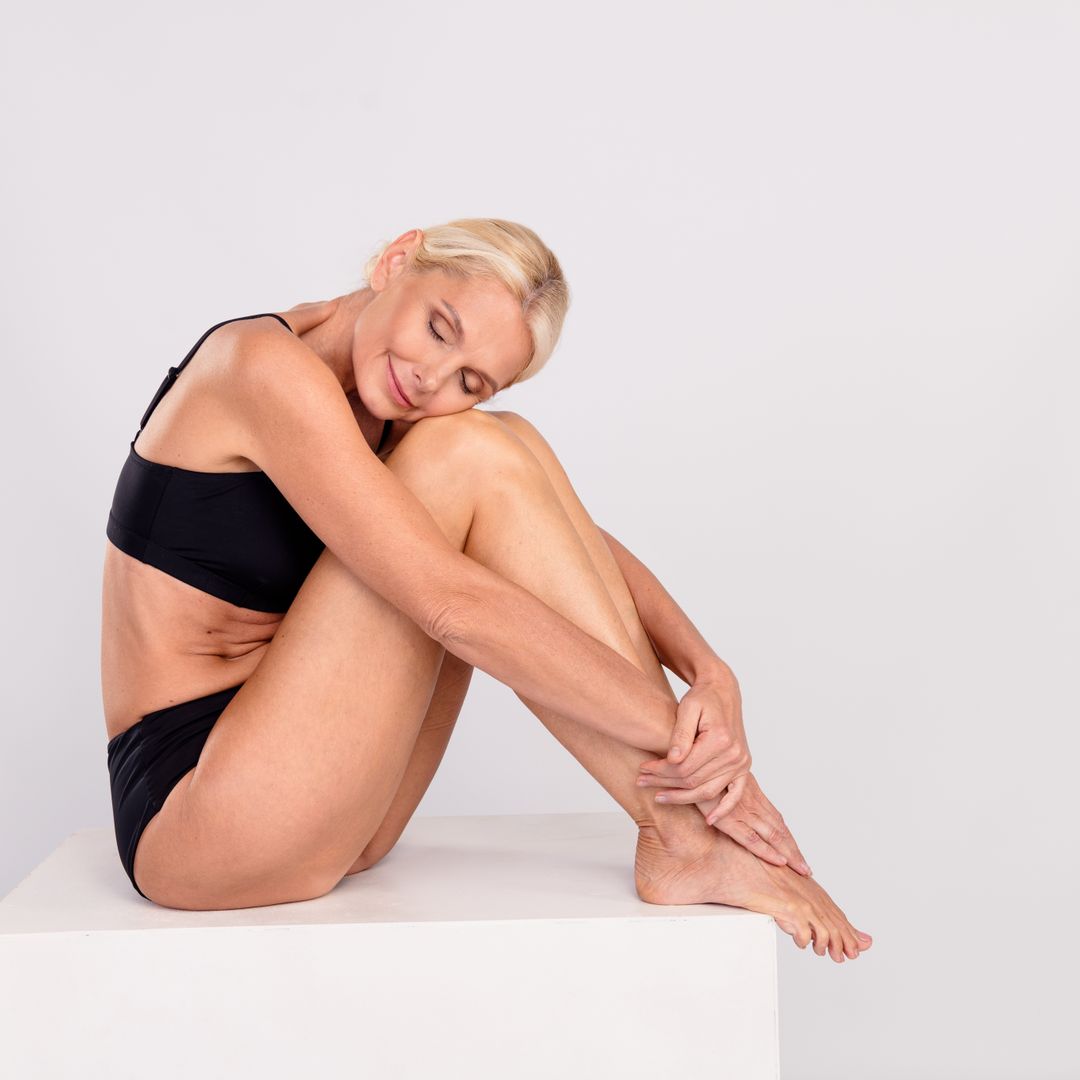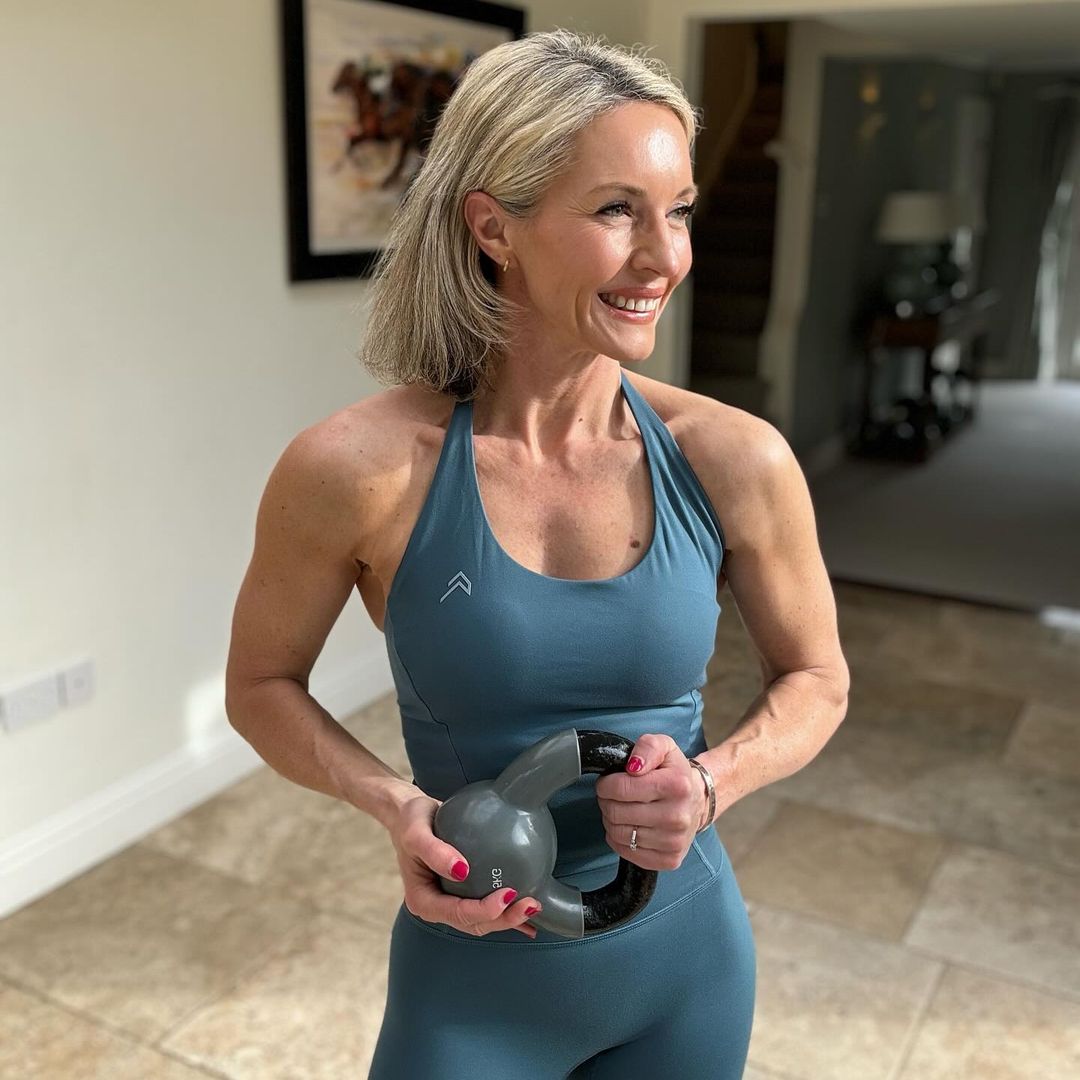Navigating menopause can be challenging for many women due to the physical and emotional changes it brings. However, Dr. Louise Newson believes that there are several strategies you can adopt to promote happiness and wellbeing during this life stage.
"Women spend about a third of their life post-menopausal, so the perimenopause and menopause can present an ideal opportunity to reset and look at your overall health and wellbeing," Dr. Louise Newson told HELLO!
"The average age of menopause is 51, and midlife tends to be a peak point of change for women. Women in my clinic often speak of the difficulty of balancing careers and caregiving responsibilities, such as caring for children or older relatives, and how struggling to cope with menopause symptoms puts an additional strain on top of these existing challenges. You might have teenage children, who themselves are going through their own hormonal changes with puberty, which can put relationships under strain – as a mother to three daughters, I know first-hand what a juggle it can be!”
“In past generations, menopause was seen as a taboo subject and as the end of a chapter in a woman’s life. But see it as a new beginning and a springboard for a healthier and happier you.”
6 tips for turning menopause into a positive
1. Understand the impact
"Familiarise yourself with the various symptoms that the perimenopause and menopause can bring – forewarned is forearmed. You have hormone receptors throughout your body, so when levels of hormones oestrogen, progesterone and testosterone fluctuate and fall, this can trigger a whole range of physical and psychological symptoms, from low mood and anxiety, fatigue, brain fog, joint aches and pains, low libido as well as hot flushes and night sweats."
"Everyone’s menopause is different. You may not have any symptoms at all, or you may experience symptoms that impact your day-to-day life – what’s important is that you educate yourself so you can recognise changes related to menopause. My free balance menopause support app has lots of information and articles to get you started, plus you can track your symptoms if you are experiencing any."
2. Seek professional help if needed
"If you are experiencing symptoms, then it’s important to speak to a healthcare professional about the best treatment approaches for you. Hormone replacement therapy (HRT) is the first-line treatment to ease menopause symptoms because it targets the underlying cause and replaces the missing hormones. Plus, it has benefits for your long-term health too. Women who take body identical HRT have a lower future risk of developing heart disease, osteoporosis, type 2 diabetes, clinical depression and dementia."
READ: Later life doesn't have to be boring – I'm living proof!
3. Adopt a holistic approach
“It’s really important to take a holistic approach to managing your menopause, especially nutrition. You might be fatigued and so find yourself reaching for sugary or processed snacks to give you an energy boost. The odd treat in moderation is fine, but you really should be aiming for a diet rich in vitamins and nutrients to keep you energised and satisfied.
RELATED: Five smart ways to deal with perimenopause according to a nutritionist
"You could try doing a food cupboard audit or keeping a food diary for a couple of days and ask yourself is your diet as balanced and nutritious as it can be? What tweaks can you make to make the most of every meal? Variety is key, and following the principles of the Mediterranean diet, which is full of fresh ingredients and healthy fats, is a good place to start. Batch cooking is also a great way to keep a balanced diet on track. Life is so hectic these days, so I often make up a big batch of grains and veggies at the weekend and use that as the basis for lunches and suppers during the week, adding in my favourite proteins like fish or cheese.”
4. Consider your exercise regime
“Exercise is another important area to look at as it’s good for your bones, heart and mental health. If you haven’t exercised for a while, don’t put too much pressure on yourself to change everything all at once: start with some small achievable goals and build from there.
"This might be something as simple as trying to take a short walk every day or trying out a class with a friend (and a great way to turn it into a social activity). Find an activity that you enjoy, and you’ll be far more likely to stick to it. I’m not a huge fan of the gym or classes, but I love yoga: it helps me to focus, makes me strong and I love the fact I can just roll out my yoga mat in my room whether I’m at home or travelling for work."
5. Prioritize sleep
"Sleep is another key area to focus that often gets overlooked, but it’s so important for your mental and physical health. We often try to ‘catch up’ on sleep lost during the week by having a lie-in at the weekend. But having a consistent bedtime and waking time is better.
DISCOVER: Why can't I sleep during menopause? The real reason
"If you’re struggling with hot flushes or night sweats, cotton nightwear can help you feel more comfortable and if you find yourself worrying at night time, I always keep a notepad and pen on my nightstand so I can write my thoughts down and clear my head."
6. And finally, but most importantly, prioritize YOU
“Menopause and midlife is a time to start prioritising you: you know what you love doing and what brings you joy, so even setting aside half an hour to focus on doing something you love every day can lift your mood.”












